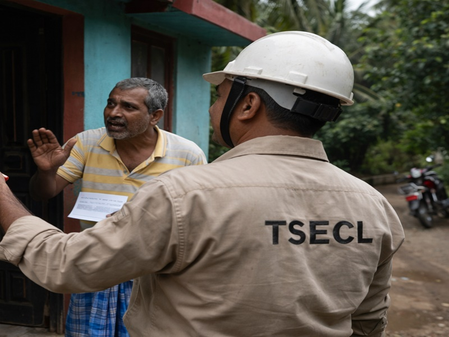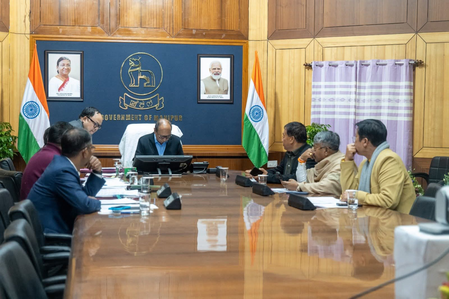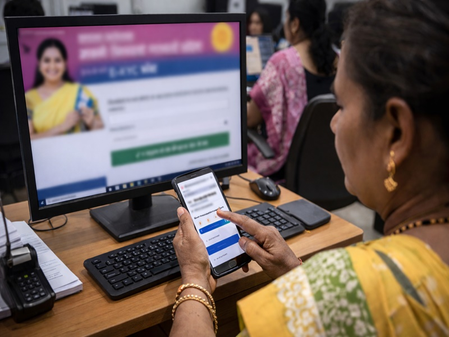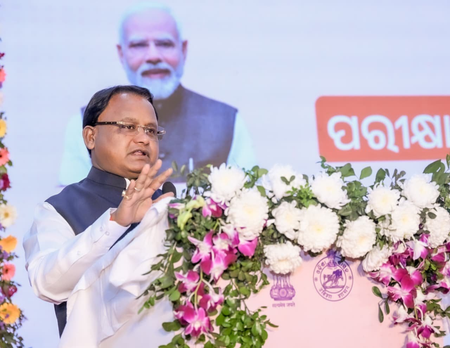
Lucknow, May 6 (IANS) There is something in Uttar Pradesh that happens during elections — new political parties are born at an alarming rate.
Majority of the parties that mushroom during elections, tend to bask in reflected glory with names that sound suspiciously similar to established political parties. Most of them vanish after the elections are over.
These parties are registered but unrecognised by the State Election Commission (SEC).
The latest example of this is the Rashtriya Shoshit Samaj Party (RSSP), headed by controversial leader Swami Prasad Maurya.
The RSSP was born in February this year after Maurya quit the Samajwadi Party. He had earlier walked out of BSP to join the BJP and then left the BJP to join SP.
Maurya announced that he would contest the Kushinagar seat and sought support from the INDIA bloc which did not respond to his feelers.
Two days ago, Maurya opened channels of communication with the BSP and there is a strong buzz that he may return to his parent party and contest Kushinagar as BSP candidate.
The Peace Party, founded by Dr Ayub, made a debut in 2012 assembly polls by winning four assembly seats. Later the party vanished from the political horizon and nothing is now heard of it.
Most of the parties that mushroom during the poll season have names that sound similar to established political parties.
There is the Bahujan Maha Party, Bahujan Mukti Party, Bahujan Kranti Party and Bahujan Vijay Party that sound like clones of the Bahujan Samaj Party.
The Bahujan Samaj Party (BSP), incidentally, has the maximum number of clones with the Bharatiya Samaj Party (also BSP) having caused maximum damage to the original by confusing voters in the 2012 Assembly elections.
Other parties basking in reflected glory include Jantantrik Bahujan Samaj Party, Loktantrik Bahujan Samaj Party, Bahujan Ekta Party and Kisan Mazdoor Bahujan Party.
In the Samajwadi category, there is the Samajwadi Kranti Dal, Samajwadi Janata Party, Samajwadi Congress, Rashtriya Samajwadi Party and Samajwadi Dal.
The Samajwadi Party clones include Subhaswadi Bhartiya Samajwadi Party, Bhartiya Samajwadi Party, Naveen Samajwadi Dal, Sanyukt Samajwadi Dal and Rashtriya Krantikari Samajwadi Party.
The Aam Aadmi Party (AAP) also has a clone that goes by the name of Akhil Aam Aadmi Party (AAAP) while the BJP has to counter the Bhartiya Janjagran Party — also BJP.
Among the 115 registered parties with the UP State Election Commission, there are parties with names like Right to Recall Party, Political Justice Party, Apni Jantantrik Party, Bhartiya Labour Party, Parivartan Samaj Party, Sanatan Samaj Party and Bhartiya Maha Shakti Morcha.
There is also the Jan Adhikar Manch floated by former BSP minister Babu Singh Kushwaha. Kushwaha is now contesting elections from Jaunpur on a Samajwadi symbol.
Former IPS officer Amitabh Thakur’s Azad Adhikar Sena is also contesting the elections.
A retired official of the State Election Commission, said, “Most of these parties are promoted by the main political parties so that they can get additional booth agents and additional vehicles in the name of these parties. Most of these parties with names similar to a bigger party, do not even make an effort to popularise themselves. However, at times, such parties also damage the main outfit by creating confusion in the mind of the voter.”
For instance, in the 2017 UP Assembly elections, the relatively unknown Pichhda Varg Mahapanchayat Party (PVMP) contested the polls with the matchstick as its poll symbol.
The party claimed to have the support of OBCs “who have been betrayed by almost all parties” and said it would contest all 403 seats.
The PVMP failed to make any waves in the polls and its performance was not even worth recording.
The party vanished from the political horizon after that.
The Sarv Sambhav Party (SSP), headed by Bollywood actor Rajpal Yadav, met with a similar fate.
The SSP entered the poll arena in the state in 2017 but nothing was heard about the SSP or its leaders after that.
An SEC official said that the registration of political parties was often done with ulterior motives.
“The Election Commission should debar parties that register themselves and then do not contest elections or even get a specified number of votes. Many of these outfits make good money during elections by outsourcing their agents and vehicles. Strict action needs to be taken in cases of such parties,” he said.
–IANS
amita/uk




